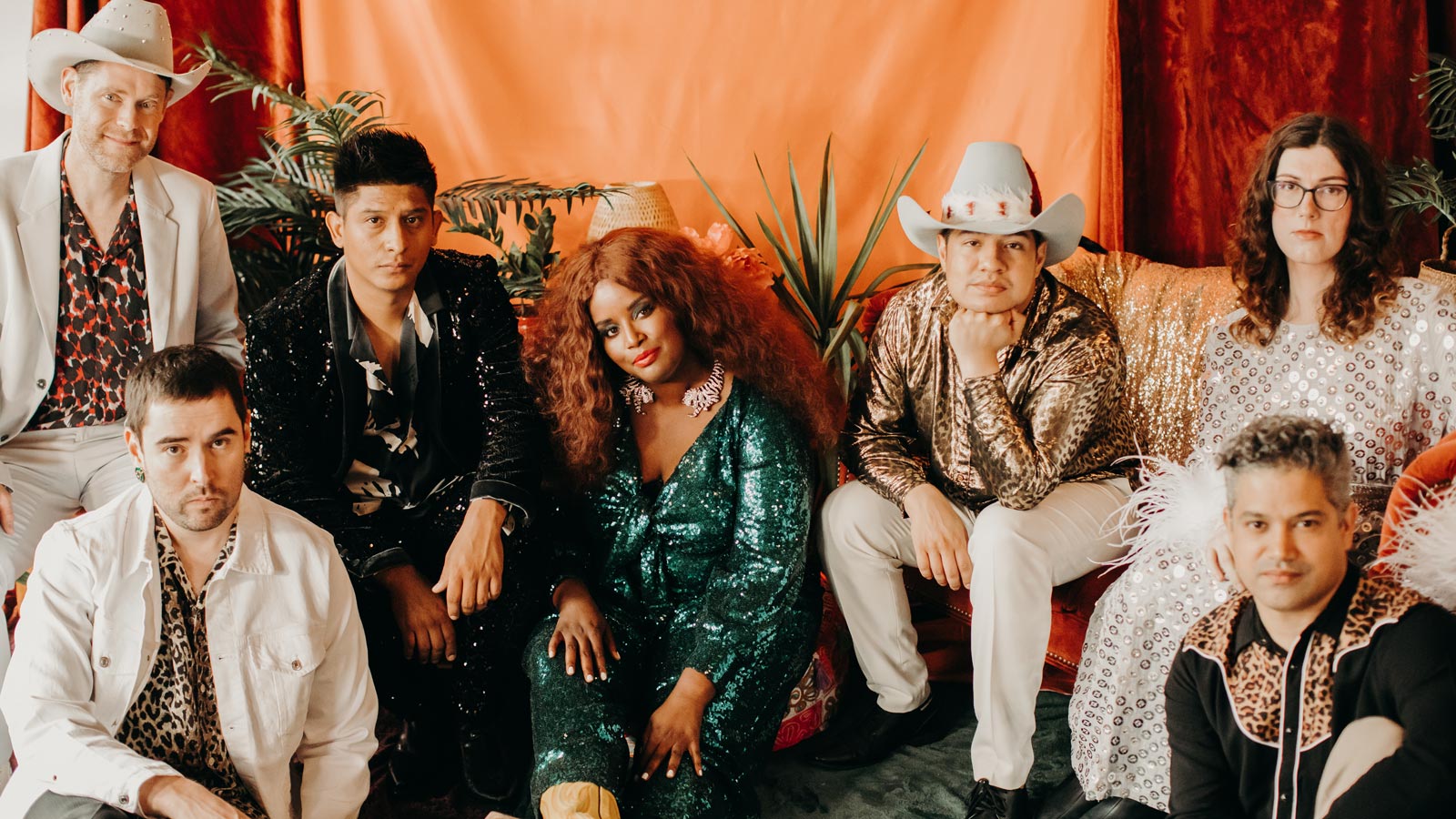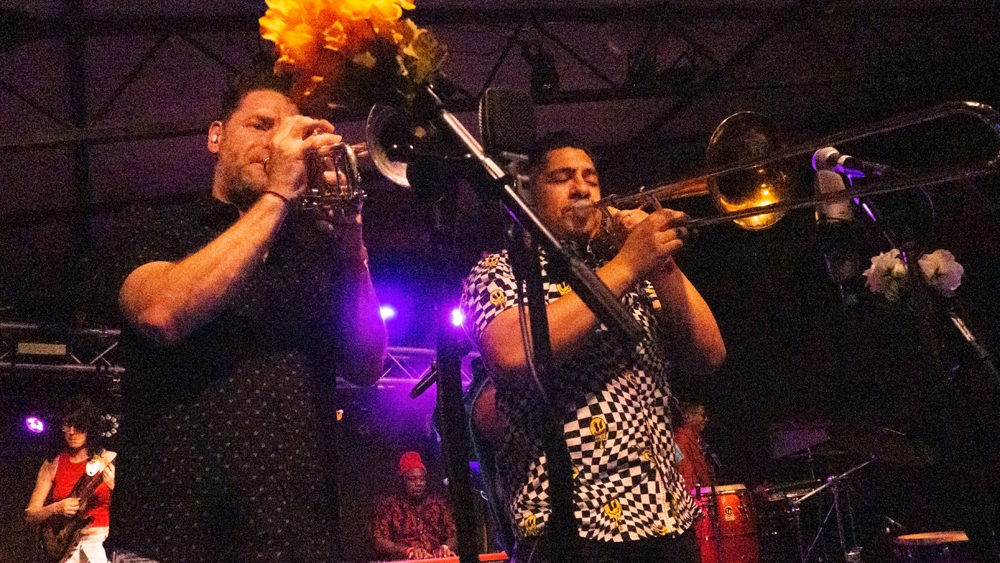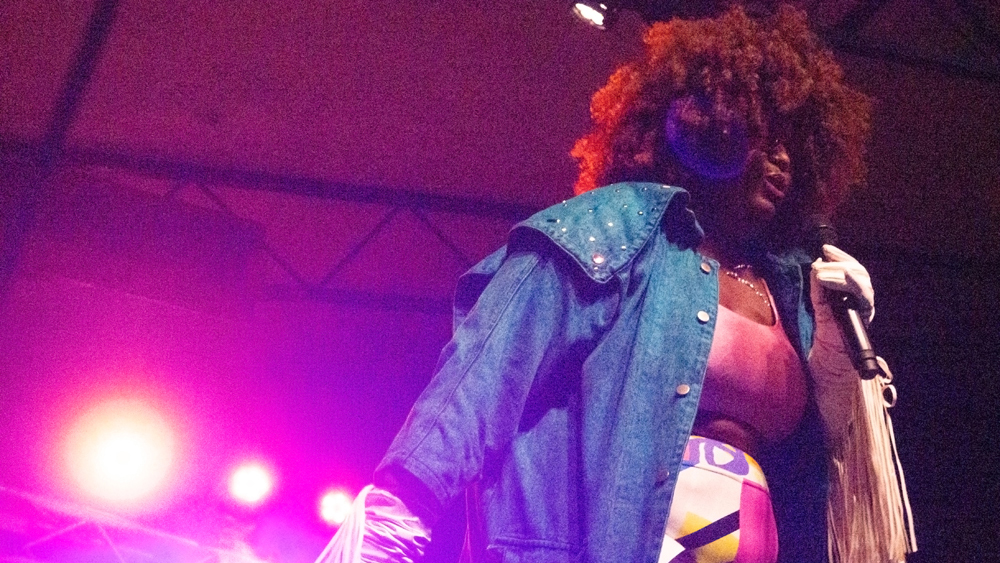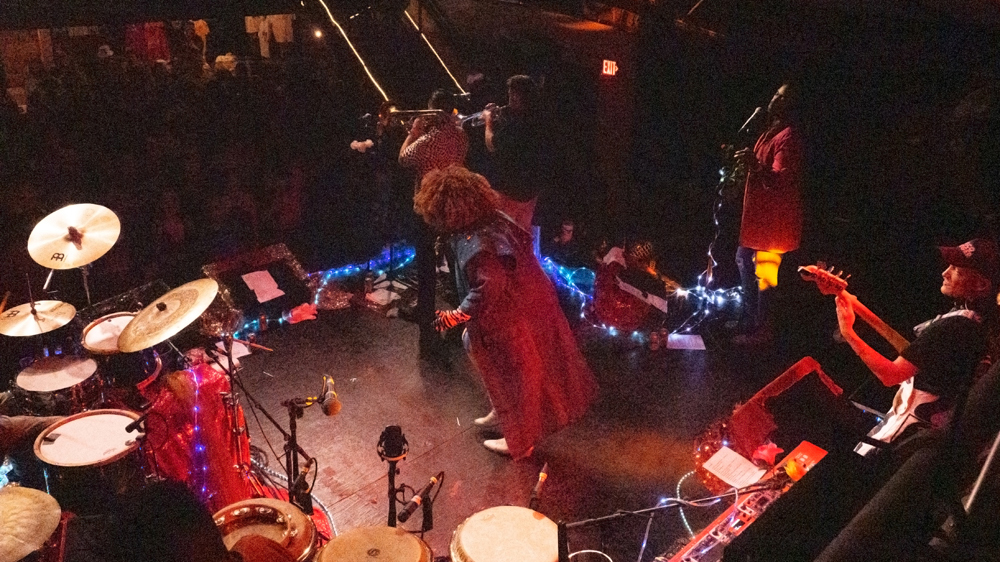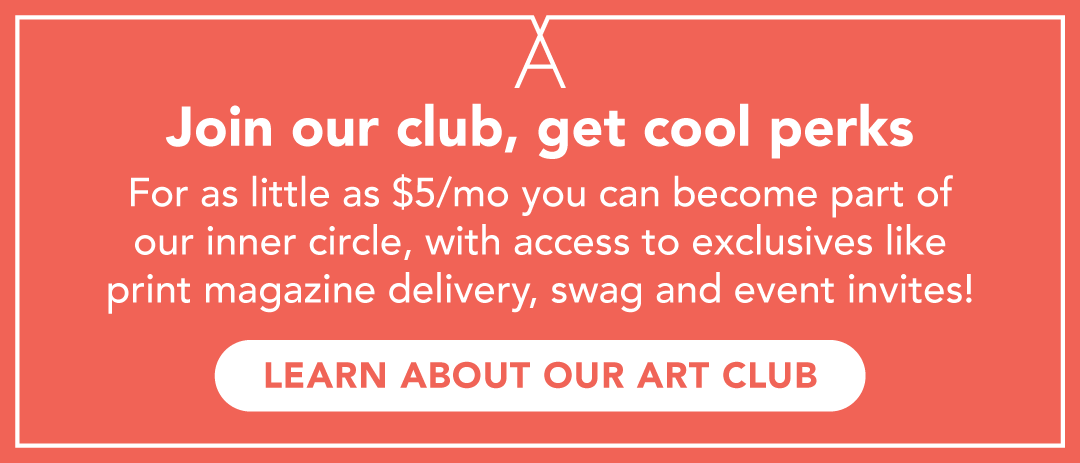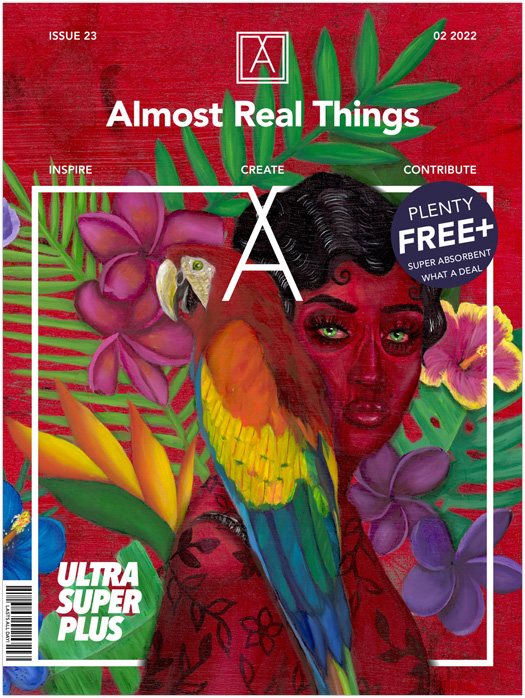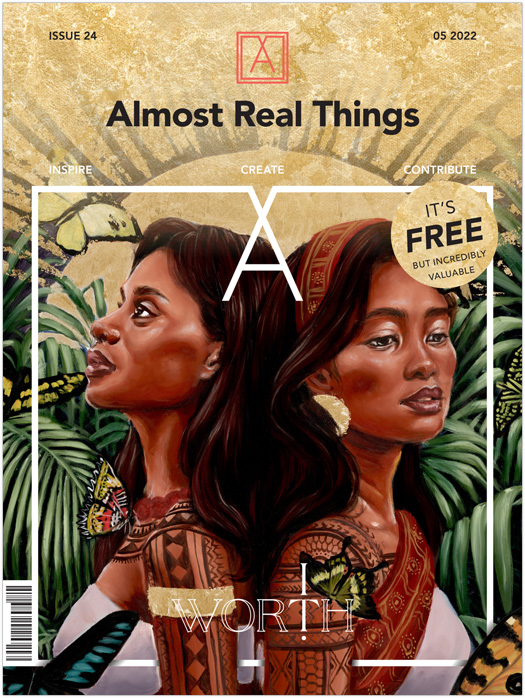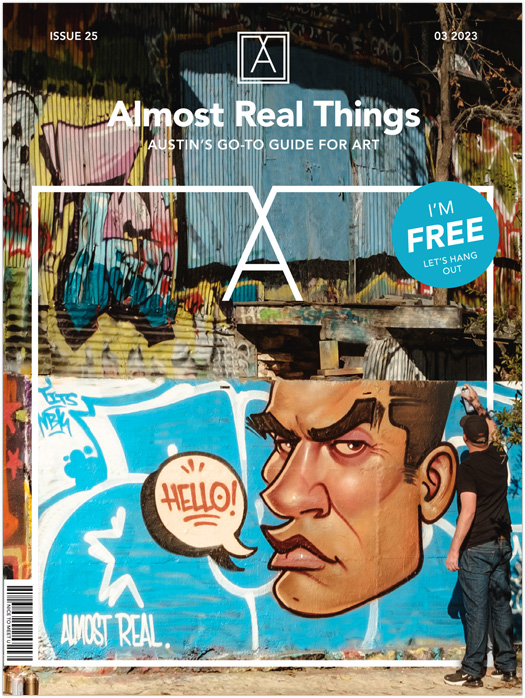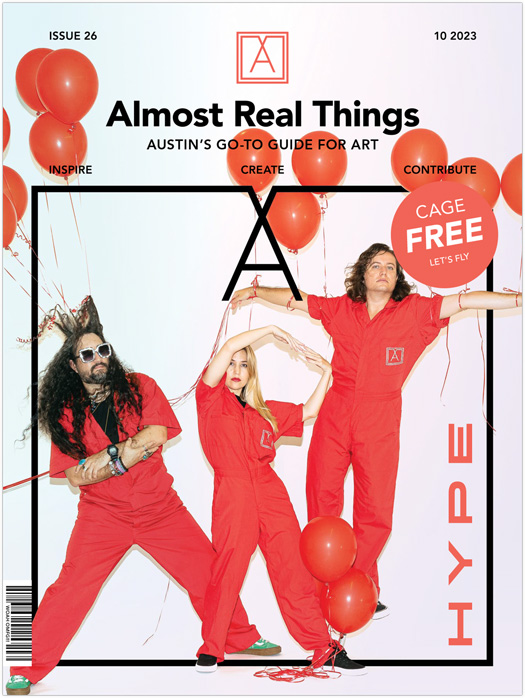The Suffers have been earning their way onto our Top Tunes playlist for four years now with their vivacious blend of soul, disco, gospel and R&B. So when we received an interview invite to the eight-piece’s headlining gig at Mohawk last month, we immediately cancelled our dinner plans with Beto.
Cover photo credit: Agave Bloom Photography
The show took place the day after their triumphant third album release, It Starts With Love, and it ended with a packed dance floor, new friends, and more smiles than a toothpaste commercial. Of course, we had listened to the album cover to cover four times in the previous 24 hours and honestly, it’s our favorite of the year so far.
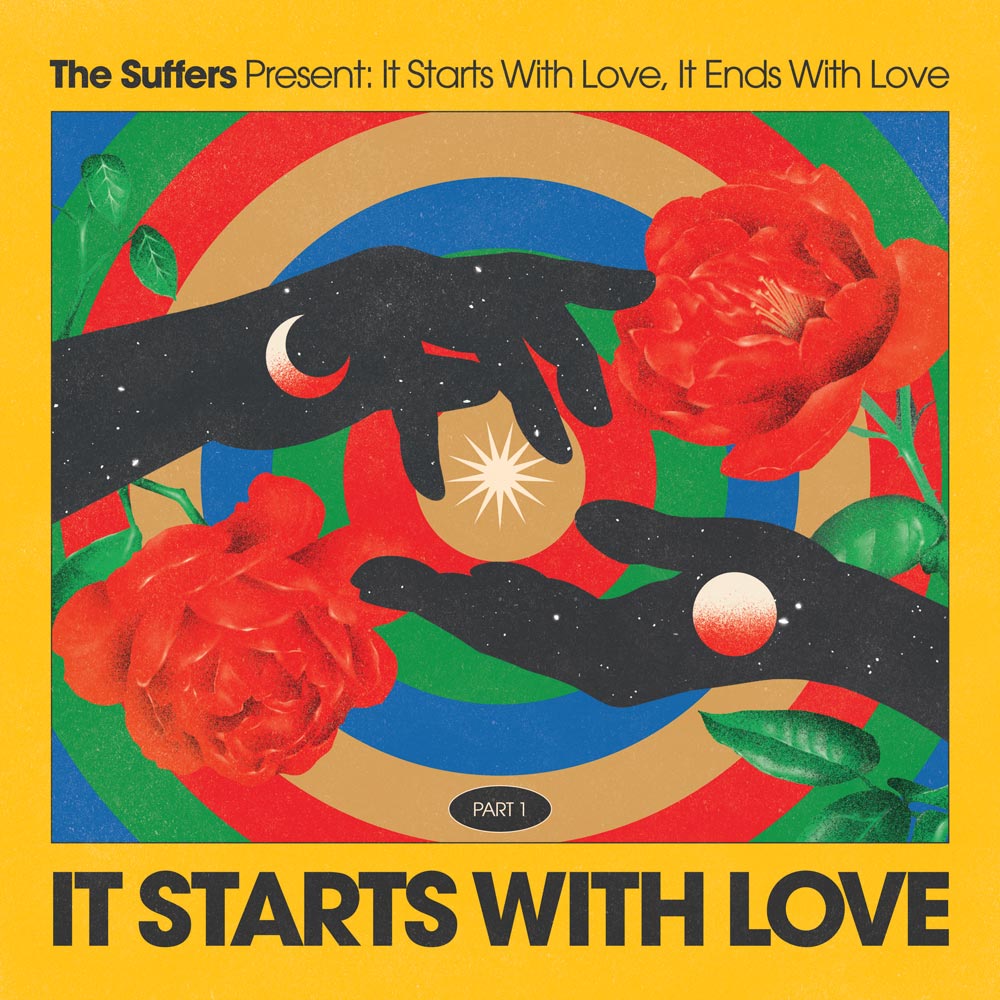
This is one of those “throw it on to get shit done, to feel empowered, to bust a move” kind of albums with lots of replayability. The songwriting has depth with messages of resilience, passion and celebration and frontwoman Kam Franklin pours her heart into every line. You can tell it took three years to craft and they don’t even say the word COVID once. No promises about the other 57 demos that didn’t make it onto this one though.
Anyway, we were hyped to meet the band on the week of their 11th anniversary to chat about our favorite topics here at Almost Real Things: what led you to this point, what gets you fired up, who do you love, and what can you teach us all. So we rolled over to Mohawk, climbed up to the greenroom and, because it’s summer, went outside to talk with singer Kam Franklin, bassist Juliet Terrill and percussionist Jose “Chapy” Luna.
Sit back, push play and enjoy the conversation as much as we did!
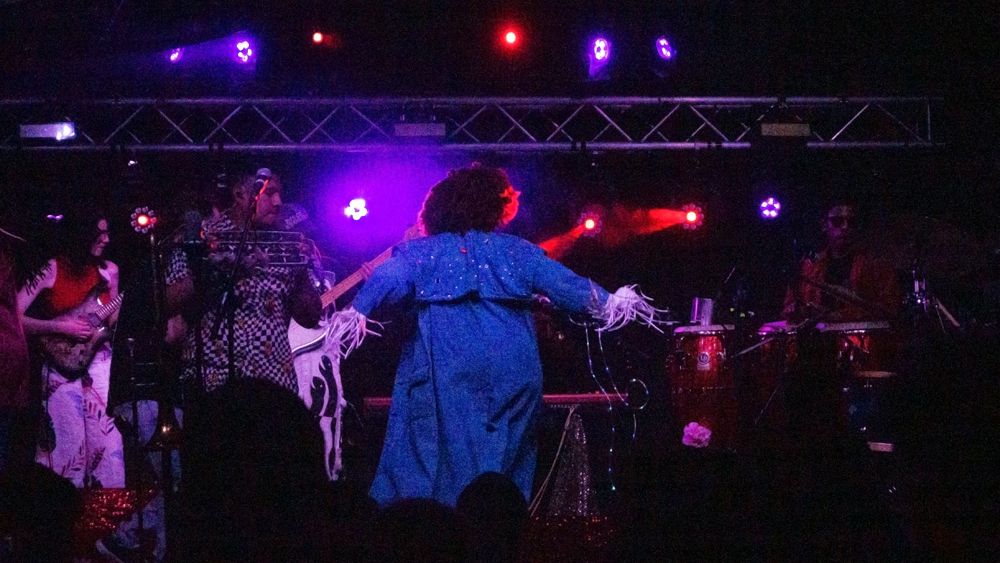
What did you want to be when you grew up and what were you listening to?
Kam: Either a rockstar or a Supreme Court Justice. I don’t know if the court would like my rockstar side though. I think they’ll be ready for someone like me in two generations.
I knew I wanted to be a musician in middle school. People were always in my face saying I had a gift. I listened to gospel, pop, soul, Tejano music, rock ‘n’ roll—parts of everything—then I got to ska and reggae and my brain expanded. I looked up to Brandy, Monica and Destiny’s Child and although I had no concept of how the music industry worked, I knew that if I worked hard enough I could eventually have a belly-button ring and sing for a living.
Chapy: Definitely a musician. I had a family band that played Spanish music and I grew up listening to everything too.
Juliet: My parents trained me to be a musician from a young age. We’d play a game where they’d turn on the radio for two seconds and turn it off and ask me “Who was it?” Then they’d do it again and have me follow the beat. I was in bands by age 12.
What’s the best and worst thing about your hometown of Houston?
Kam: Houston has some of the most talented artists of all time coming out of it—Beyoncé, Megan Thee Stallion—but we have a confidence problem. We grow up with so much talent around us but so few resources that it feels more competitive than it should be. We aren’t taught about true collaboration until we’re in it. Until the city steps up, we’re going to keep seeing talented artists go unnoticed and disappear.
Chapy: The food is great but the traffic is bad.
Kam: I’m convinced our city is the testing ground for highways.
Juliet: I love Houston’s celebratory nature. People are out partying all the time. “Why is there a block party on that aisle of the grocery store?” Because we fuckin’ exist!
What’s it like for musicians? Who are your favorites?
Kam: It’s a beautiful scene and I never stop being impressed. Shout out DENDE, Lilly Aviana, Nick Connors, LE$, AJ McQueen, Z’maji, Sugar Joiko, Fat Tony, Uncle Tino.
Unfortunately I see a lot of people reaching a point where they have to move to LA or somewhere to really get what they need. That’s the case for a lot of arts due to the lack of resources—money and opportunities. Austin has a great start—health insurance for musicians (HAAM), Austin City Limits Festival, SXSW—all great opportunities to survive as a musician.
That change has to start from the top. It would be nice to see Governor Abbott follow the route of some of his—it’s funny to say—his more liberal predecessors. George Bush and Bush Jr. had no problem spending money on the arts. But they were also creatives. Texas used to be a leader in the creative arts. How do we become that again if we’re always cutting funding?
I’m the product of arts funding. I wouldn’t be here if it weren’t for those magnet programs that have since been cut from the neighborhoods that I grew up in. I was taught to ask questions and I have to do it through mediums like Almost Real Things since the governor won’t respond to my letters. I got nothing but stamps!
Does this kind of activism influence your songwriting and music?
Kam: Half of this new record is about the bullshit and ridiculousness of our industry and why it’s so hard to succeed for reasons that make no sense at all. When I was growing up it was all about how good you are, how hard you’re willing to work, and if you can repeat the show every night.
Now it’s based on the opinions of corporate executives—people who have never written a song and have never performed on a stage. They control everything. The CEO of Spotify tells us how we are supposed to release as artists and they’re trying to convince us that people who really fucking love music don’t want albums anymore. They just want singles. It’s not true.
If I really love someone’s music, I want to hear everything they’ve ever made. But artists get told budgets are going down or redirected to social media personalities or we should just do it for the exposure. Industries evolve, and I acknowledge that. We have to constantly keep up. But there’s a difference between evolution and pure sabotage.
It might sound crazy but in other states music isn’t looked at as just a hobby—it’s acknowledged as a career. The states that have fallen behind are getting even further behind because for some reason they’re focused on real weird shit right now.
Do you think young musicians are paying attention to these shifts?
Kam: It depends. Some are doing a great job. Some just don’t want to be poor anymore. Some are thirsty for fame and would sell their mom to get featured on a playlist.
Juliet: I teach music lessons and so many of my students don’t know what a viable career in music looks like. They don’t know what a professional musician does to get money. Social media is the only reference point they have and they have no concept of being in a working band.
A lot of politicians think all funding has to go through schools, but direct patronage and mentorship goes so much further. That kind of support shouldn’t only exist in affluent neighborhoods. Every once in a while a movie will come out about a musician ‘making it’ and it’s presented as this really big deal. But it shouldn’t be that hard.
Kam: We learned the smarter way of going about things. For this record we said we’re just going to focus on the music and each other.
What did that process look like over the past three years?
Kam: The majority of the band stays home in different spots when we’re not touring. I spend the majority of my time linking up with writers who I’ve built relationships with. I’ll start with one of them and send it to Jules and she’ll come up with an idea and send it back to me. Then Chapy is my first round of “Is this tight?—”
Chapy: —sometimes no, but we can make it tight!
Kam: We were very focused on making sure that any song on this album could stand tall on its own and I honestly can’t say that we’ve done that before. The past two albums were just like “this is what the fuck we want to do”. But this one was 70 demos and we kept cutting and cutting until we found 20 songs that we wanted to record. I’m sad some didn’t make it on this record but they’ll be on the next one. I’m really proud of everybody and myself and it feels amazing.
What does it take to find lasting success as a band for 11 years?
Kam: We’ve learned a lot. So before you get to work for us you have to go through a lot. You’re not just working with a woman—there are so many different dynamics happening in our band at any given time. The basic treatment of other human beings is not something that I’m trying to train someone on.
So what are some of the ingredients you’re looking for?
Kam: It doesn’t matter if you’re a musician, a manager, a tech or an assistant:
- Know how to hang
- Know how to rest
- Don’t be an asshole
- Be prepared to work hard
- Help other people
- Keep educating yourself about the industry just as much as you train as a musician
Education can help you get past your insecurities. I often think about art that we’ll never see because someone was just too scared to show it.
Juliet: Be willing to fight for things—but not about things—and be able to let things go. If you can do that, you’ll be so much happier on the day to day.
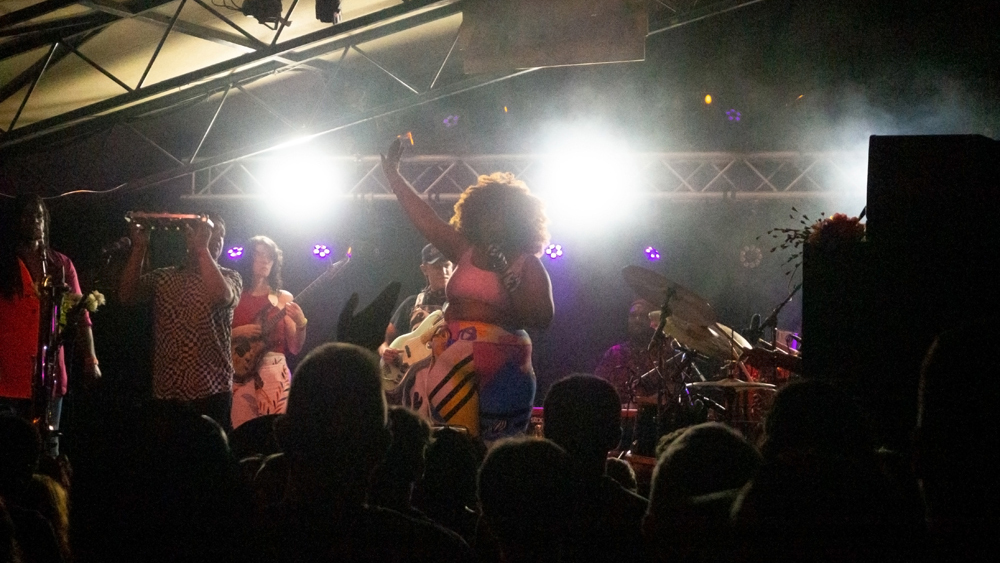
Support the bands you love
It was a super awesome list to end with and coincided exactly with Fat Tony’s sound check so we said our thank yous and headed to the stage, flush with these behind-the-scenes insights into The Suffers’ new record and process.
We highly recommend an immediate listen/dance break (they’ll get $0.01 for your stream and you’ll have a blast) + grab a ticket for a joyous party of a show (they’ll probably get half of the ticket price ~$10-15) + buy a hat or coffee beans or Good Times rolling papers (all this money goes to the band!). Your support is pretty impactful these days if you do it right and we want to keep them around for a long, long time!






